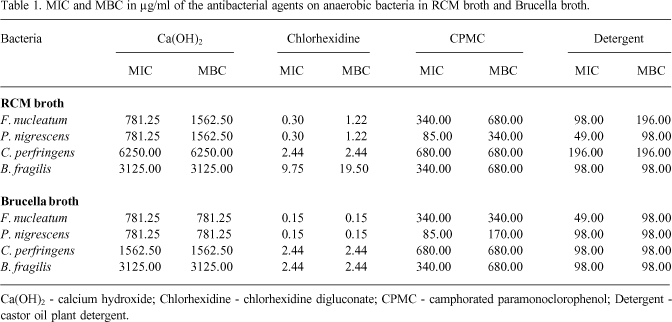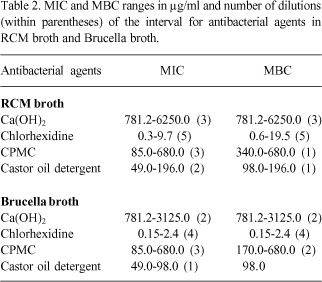The antimicrobial activity of substances used as antibacterial agents (solutions of 10% calcium hydroxide, camphorated paramonochlorophenol - PMCC, 2% chlorhexidine digluconate and 10% castor oil plant detergent) on anaerobic bacteria (Fusobacterium nucleatum ATCC 25586, Prevotella nigrescens ATCC 33563, Clostridium perfringens ATCC 13124 and Bacteroides fragilis ATCC 25285), using a broth dilution technique, was evaluated in vitro. For determination of minimum inhibitory and minimum bactericide concentrations (MIC and MBC), two culture broths, Reinforced Clostridial Medium (RCM) and supplemented Brucella, standardized inoculum and serially diluted solutions were used. All antibacterial agents presented antimicrobial activity that varied for different bacteria. There were no differences in the performance of the two broths. Chlorhexidine digluconate was the most effective, with the lowest MICs, followed by castor oil detergent, PMCC and calcium hydroxide. C. perfringens and B. fragilis were the most resistant bacteria to all agents.
endodontics; microbiology; anaerobic bacteria; antibacterial agents


